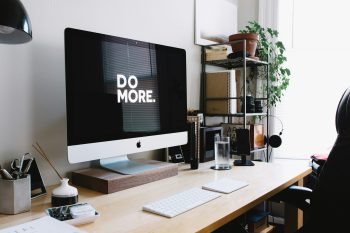You’ve booked a trip that you’ve been thinking about for ages, packed your suitcase, counted down the days – but then you feel a pang of guilt as soon as you think about setting that out of office message, and suddenly you’re plagued with a nagging sense that maybe you shouldn’t be taking time off…
You’re not alone; according to Google trend data, searches for “feel bad taking time off” have risen by 126% in the last month, as people start to prepare for mid-year breaks, and there are 11.5 million posts on the TikTok search “Feeling guilty for taking a day off work”.
But why do we feel like this? Travel expert Justin Chapman at Go2Africa explains why we feel uneasy taking a break, and how to stop the holiday guilt and enjoy the time off that you’re entitled to!

Unsplash / Luca Bravo
Why do we feel guilty for taking time off?
Hustle culture
We live in a world that glorifies working 24/7, constantly being busy, and it makes relaxation seem like a luxury. There’s often an unspoken expectation to be available, productive, and contactable at all times – and that includes during time off. This culture can make you feel like taking time off means you’re less committed to your role, especially if your co-workers and managers rarely take time off themselves, or continue to work even when they do take a break.
Social pressure
In team-orientated work environments, there is often an expectation that everyone shares the workload equally, and if one team member takes time off, it can increase the workload for everyone else. This can make you feel guilty about burdening your colleagues with extra tasks, and lead to negative comments and passive aggression from your team members, and even your managers.
Fear of falling behind
When you stop working, the work doesn’t always stop with you – and the thought of returning to a mountain of tasks can be daunting. This fear of a backlog of work can make you hesitant to take leave, as it can feel like the stress of trying to catch up when you get back to the office will negate the benefits of your time off.
Digital presenteeism
The rise of remote work in the last few years has blurred the boundaries between work and personal life, and many companies don’t have clear policies in place regarding communication during leave. This can make you feel like you need to stay connected, stay online, and keep answering emails, even when on holiday, to meet unspoken standards.

Unsplash / Carl Heyerdahl
How to stop feeling guilty for using your annual leave
Remember it’s a necessity, not a perk
If you don’t feel guilty for accepting work perks like free lunches, bonuses, and healthcare – why should you feel guilty for taking time off? Remember that annual leave isn’t a perk, it’s a necessity. Whether you’re going for a long weekend staycation or an African luxury safari, taking a break is essential for our mental and physical wellbeing, and you need time off to rest and recharge.
Focus on the benefits
Taking time off allows you to recharge your mental battery, and allow your mind to relax and recover. Regular breaks are essential in preventing burnout; restoring balance and reducing stress that’s causing you to feel so emotionally, physically, and mentally exhausted. Time off can even help improve cognitive function, enhance creativity, critical thinking, and problem-solving abilities, and make you more efficient when you get to the office.
Plan ahead & learn how to delegate
Plan ahead, making sure that your colleagues and clients know exactly when you’ll be out of the office, and ensure that your responsibilities are covered. If you know that you’ve delegated tasks well it’ll be easier to relax, knowing that things are being taken care of in your absence.
Set boundaries
A 2018 study found that 60% of people check their work emails while on holiday, and with instant access to emails on your phone, it can be very tempting to have a quick look. It’s important to clearly communicate your availability (or lack of availability) to avoid work related messages during your leave that you feel guilty about not replying to.
Be kind to yourself
Remember that everyone needs a break, and that it’s more than ok to prioritise yourself and your wellbeing. Practice some self-compassion and kindness, and reflect on your achievements and successes at work in the last year, if you feel like you need an extra push to allow yourself a break.
ALSO SEE:
Feature Image: Unsplash / Resume Genius

